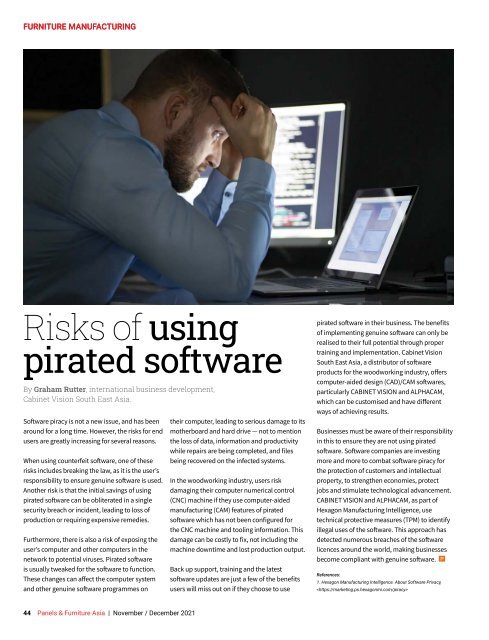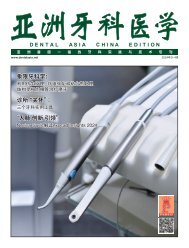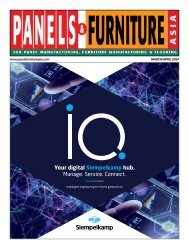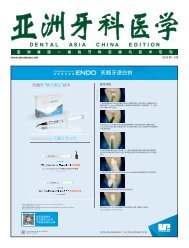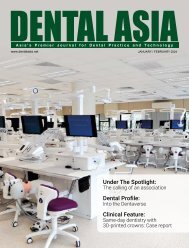Panels & Furniture Asia November/December 2021
Panels & Furniture Asia (PFA) is a leading regional trade magazine dedicated to the woodbased panel, furniture and flooring processing industry. Published bi-monthly since 2000, PFA delivers authentic journalism to cover the latest news, technology, machinery, projects, products and trade events throughout the sector. With a hardcopy and digital readership comprising manufacturers, designers and specifiers, among others, PFA is the platform of choice for connecting brands across the global woodworking landscape.
Panels & Furniture Asia (PFA) is a leading regional trade magazine dedicated to the woodbased panel, furniture and flooring processing industry. Published bi-monthly since 2000, PFA delivers authentic journalism to cover the latest news, technology, machinery, projects, products and trade events throughout the sector. With a hardcopy and digital readership comprising manufacturers, designers and specifiers, among others, PFA is the platform of choice for connecting brands across the global woodworking landscape.
Create successful ePaper yourself
Turn your PDF publications into a flip-book with our unique Google optimized e-Paper software.
FURNITURE MANUFACTURING<br />
Risks of using<br />
pirated software<br />
By Graham Rutter, international business development,<br />
Cabinet Vision South East <strong>Asia</strong>.<br />
Software piracy is not a new issue, and has been<br />
around for a long time. However, the risks for end<br />
users are greatly increasing for several reasons.<br />
When using counterfeit software, one of these<br />
risks includes breaking the law, as it is the user’s<br />
responsibility to ensure genuine software is used.<br />
Another risk is that the initial savings of using<br />
pirated software can be obliterated in a single<br />
security breach or incident, leading to loss of<br />
production or requiring expensive remedies.<br />
Furthermore, there is also a risk of exposing the<br />
user’s computer and other computers in the<br />
network to potential viruses. Pirated software<br />
is usually tweaked for the software to function.<br />
These changes can affect the computer system<br />
and other genuine software programmes on<br />
their computer, leading to serious damage to its<br />
motherboard and hard drive — not to mention<br />
the loss of data, information and productivity<br />
while repairs are being completed, and files<br />
being recovered on the infected systems.<br />
In the woodworking industry, users risk<br />
damaging their computer numerical control<br />
(CNC) machine if they use computer-aided<br />
manufacturing (CAM) features of pirated<br />
software which has not been configured for<br />
the CNC machine and tooling information. This<br />
damage can be costly to fix, not including the<br />
machine downtime and lost production output.<br />
Back up support, training and the latest<br />
software updates are just a few of the benefits<br />
users will miss out on if they choose to use<br />
pirated software in their business. The benefits<br />
of implementing genuine software can only be<br />
realised to their full potential through proper<br />
training and implementation. Cabinet Vision<br />
South East <strong>Asia</strong>, a distributor of software<br />
products for the woodworking industry, offers<br />
computer-aided design (CAD)/CAM softwares,<br />
particularly CABINET VISION and ALPHACAM,<br />
which can be customised and have different<br />
ways of achieving results.<br />
Businesses must be aware of their responsibility<br />
in this to ensure they are not using pirated<br />
software. Software companies are investing<br />
more and more to combat software piracy for<br />
the protection of customers and intellectual<br />
property, to strengthen economies, protect<br />
jobs and stimulate technological advancement.<br />
CABINET VISION and ALPHACAM, as part of<br />
Hexagon Manufacturing Intelligence, use<br />
technical protective measures (TPM) to identify<br />
illegal uses of the software. This approach has<br />
detected numerous breaches of the software<br />
licences around the world, making businesses<br />
become compliant with genuine software. P<br />
References:<br />
1. Hexagon Manufacturing Intelligence. About Software Privacy,<br />
<br />
44 <strong>Panels</strong> & <strong>Furniture</strong> <strong>Asia</strong> | <strong>November</strong> / <strong>December</strong> <strong>2021</strong>


